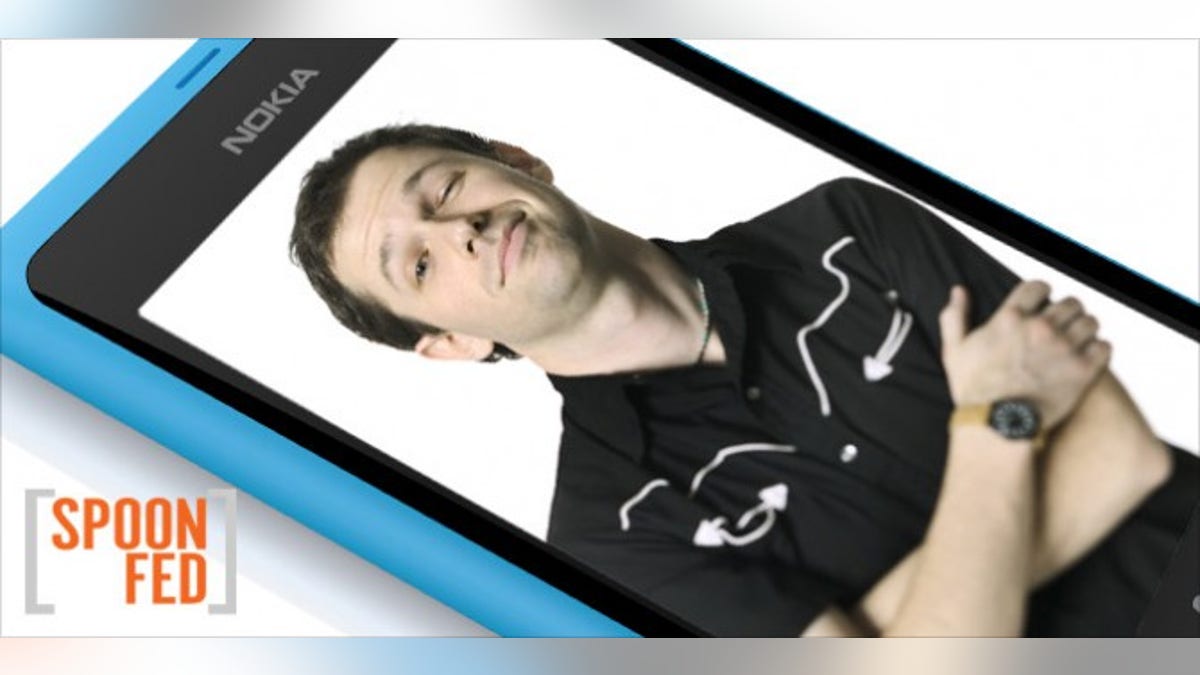
I didn't realize it at the time, but for a brief moment I certainly acted like one. Recently, when I spotted someone using an old BlackBerry, I said to myself "How quaint." Yup, I was acting like a tech snob, an elitist passing judgment on a person because he hadn't yet upgraded to a newer smartphone. This if-it-isn't-cutting-edge-it's-worthless line of thinking is dangerous for those who are supposed to be objective about imparting shopping advice and delivering fair product reviews.
Yet all too often I see people in our industry thumb their noses at new products that are designed to appeal not to the earliest of early adopters but to the masses.
A great example of tech snobbery in action were the negative reactions to the Nokia Lumia 900. Of course it was important to point out that the Windows Phone doesn't have as many apps as Android or the iPhone. Or the highest-resolution screen. But some reviewers lost sight of the value and overall user experience this phone delivers for just $99. It's one of a few handsets I tested in the past year I didn't want to give back after the evaluation was over.
Yes, a $199 iPhone 4S or HTC One X has better specs, but it should for $100 more, and many simply don't have that extra money up front to spend.
I was also perplexed by the elitist backlash to the Amazon Kindle Fire when that product debuted. Like many others, I noted the early software bugs and other weaknesses of that device — including the lack of volume controls and the oddly placed power button. But at the end of the day the Fire was a killer deal at $199, and it quickly went on to become the No. 2-selling tablet behind the iPad. What some labeled a walled garden of content I call a seamless and easy-to-use ecosystem.
On paper, the new Galaxy Tab 2 7.0 should beat the pants off the Fire. It has dual cameras, a microSD card slot, and even doubles as a remote. But while this $249 slate is a good value, Android Ice Cream Sandwich on tablets is simply not as intuitive as Amazon's "eReader with benefits."
The editors at LAPTOP have been labeled tech snobs for how we've reviewed certain products, such as the Eee PC 1025C Flare, a $299 netbook. Does this sound too harsh to you?
"The last of a dying breed, the ASUS Eee PC 1025C Flare demonstrates why tablets have superceded netbooks as the lightweight computing device of choice — pound for pound, slates offer faster performance, sleeker designs and more intuitive touch interfaces. Still, if you're in the market for a compact laptop that costs a third of the price of an Ultrabook, the Eee PC 1025C is worth a look. It can handle basic tasks with ease, weighs only 2.4 pounds and lasts more than three hours longer on the charge than the average netbook. Not bad for a laptop that costs less than $300."
Some readers took exception to our criticism:
Another said:
In our defense, we didn't dismiss the Eee PC 1025C. We framed our conclusion within the trend of shoppers moving away from netbooks in general. However, our commenters have a point. There are those who simply prefer having a keyboard and are willing to put up with low-res screens and slower responsiveness than tablets in exchange for increased overall productivity and access to full Windows.
Some reviewers take tech snobbery to the other extreme. They get so blinded by a device's top-of-the-line features and newness that they overlook key weaknesses. Take the gushing over the Samsung Galaxy Nexus for Verizon. Having a slick Roboto font, improved multitasking and an HD screen doesn't warrant an award when the phone's battery dies by lunchtime.
We always strive to keep the target audience for a given product in mind when we review it, but there's always the risk of that tech elitism creeping in. And it's something everyone in the tech journalism world needs to guard against in order to deliver evaluations that are fair and ultimately helpful instead of just cynical or snooty.
Editor-in-chief Mark Spoonauer directs LAPTOP’s online and print editorial content and has been covering mobile and wireless technology for over a decade. Each week Mark’s SpoonFed column provides his insights and analysis of the biggest mobile trends and news. You can also follow him on Twitter.








































